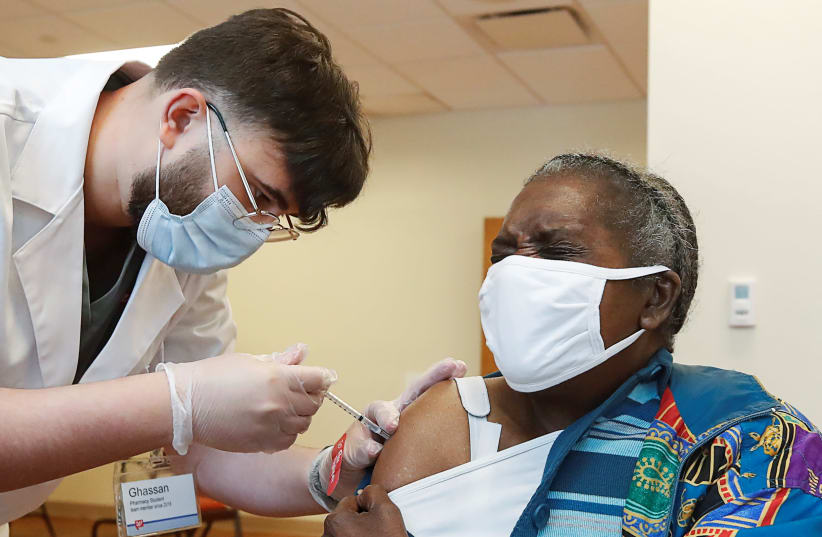What is the best process to make complex medical decisions? Which factors influence them? And how should a doctor react before a patient who shows hesitancy in receiving a coronavirus vaccine? Part of the answers might lie in fostering good communication between the physician and the patient, according to Dr. Zackary Berger, an associate professor in the Division of General Internal Medicine and Core Faculty at the Johns Hopkins Berman Institute of Bioethics in Baltimore, Maryland.
However, external factors also have a huge impact on the process, as Berger emphasized during a lecture organized by the Ono Academic College in Kiryat Ono on Tuesday on the “shared medical information” approach.
“Decisions are embedded in social context, we need to change it in order to change the decisions,” Berger pointed out.
Berger emphasized how inequality, including racial inequality, and difficulties in accessing quality healthcare might influence people’s choices. He offered the coronavirus vaccination campaign in the US as an example.
“There is a lot of discussion about vaccine hesitancy, especially among African American, and Latinx [communities],” he emphasized. “The conversation focuses more on these phenomena than on problems in distribution.”
Berger explained that if individuals saw more people getting vaccinated in their communities, they would be less reluctant to get inoculated themselves.
“If access to vaccines was facilitated, it would help address hesitancy. There are so many reasons why access to vaccines for certain groups is easier than for other groups, lacking healthcare access, proper documentation, problems in taking time off for side effects... all these things impact reluctance. There is a connection between maldistribution, lack of access and hesitancy,” he pointed out.
According to the SMD model, an ideal model of communication between doctor and patient, it would require the former to inform the latter that a decision needs to be made, explaining the options with their pros and cons. This would be followed by a discussion between the two taking into consideration the patient’s preferences and his decisional role. Finally, the decision itself could be made or deferred, and follow-up issues would be considered.
In real life, the doctor stressed, things are often not so straightforward, also considering that the democratization of decisions has its limits too.
When asked about what to do about individuals who do not want to get vaccinated against COVID, he said, “all we can do is to make the vaccine easier to get and we can answer questions.”
“Anybody who is a clinician needs to carry out some active, deep and receptive listening and be prepared to live with the answers,” he explained. “If you convince your patients, you have done your job, but if you don’t convince them, you have also done your job.”
“This is a real question when it comes to shared decision making: How do you do shared decision making when there is a right and a wrong?” Berger concluded. “If you empower people to make up their own minds, sometimes you have to accept it.”
